42 start with T start with T


The field of bioethics was deeply influenced by religious thinkers as it emerged in the 1960s and early 1970s. Since that time, however, a seemingly neutral political liberalism has pervaded the public sphere, resulting in a deep suspicion of those bringing religious values to bear on questions of bioethics and public policy.
As a theological ethicist and progressive Catholic, Lisa Sowle Cahill does not want to cede the "religious perspective" to fundamentalists and the pro-life movement, nor does she want to submit to the gospel of a political liberalism that champions individual autonomy as holy writ. In Theological Bioethics, Cahill calls for progressive religious thinkers and believers to join in the effort to reclaim the best of their traditions through jointly engaging political forces at both community and national levels.
In Cahill's eyes, just access to health care must be the number one priority for this type of "participatory bioethics." She describes a new understanding of theological bioethics that must go beyond decrying injustice, beyond opposing social practices that commercialize human beings, beyond painting a vision of a more egalitarian future. Such a participatory bioethics, she argues, must also take account of and take part in a global social network of mobilization for change; it must seek out those in solidarity, those involved in a common calling to create a more just social, political, and economic system.
During the past two decades Cahill has made profound contributions to theological ethics and bioethics. This is a magisterial and programmatic statement that will alter how the religiously inclined understand their role in the great bioethics debates of today and tomorrow that yearn for clear thinking and prophetic wisdom.
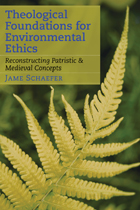
Earth is imperiled. Human activities are adversely affecting the land, water, air, and myriad forms of biological life that comprise the ecosystems of our planet. Indicators of global warming and holes in the ozone layer inhibit functions vital to the biosphere. Environmental damage to the planet becomes damaging to human health and well-being now and into the future—and too often that damage affects those who are least able to protect themselves.
Can religion make a positive contribution to preventing further destruction of biological diversity and ecosystems and threats to our earth? Jame Schaefer thinks that it can, and she examines the thought of Christian Church fathers and medieval theologians to reveal and retrieve insights that may speak to our current plight. By reconstructing the teachings of Augustine, Thomas Aquinas, and other classic thinkers to reflect our current scientific understanding of the world, Schaefer shows how to "green" the Catholic faith: to value the goodness of creation, to appreciate the beauty of creation, to respect creation's praise for God, to acknowledge the kinship of all creatures, to use creation with gratitude and restraint, and to live virtuously within the earth community.
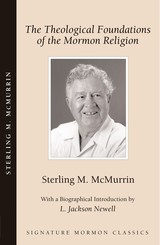

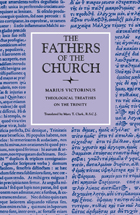
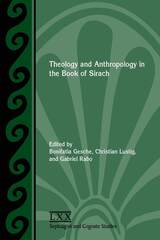
New research on Sirach for scholars and students
The present volume of English and German essays includes the proceedings of an international conference held in Eichstaett, Germany, in 2017. Themes of creation, emotions, life, death, wisdom, knowledge, the individual and society, family, gender, mercy, justice, and freedom are but a few of the topics that contributors explore in this new collection. Essays explore the rich intertextual connections between Sirach and other biblical texts.
Features:
- Attention to theological distinctions presented in the Hebrew, Greek, Syriac, and Latin versions of the book of Sirach
- Examination of the reception of Sirach in the New Testament and the early modern era
- English abstracts for German-language essays and German abstracts for English-language essays
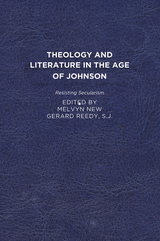
Published by University of Delaware Press. Distributed worldwide by Rutgers University Press.

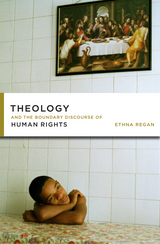
What are human rights? Can theology acknowledge human rights discourse? Is theological engagement with human rights justified? What place should this discourse occupy within ethics?
Ethna Regan seeks to answer these questions about human rights, Christian theology, and philosophical ethics. The main purpose of this book is to justify and explore theological engagement with human rights. Regan illustrates how that engagement is both ecumenical and diverse, citing the emerging engagement with human rights discourse by evangelical theologians in response to the War on Terror. The book examines where the themes and concerns of key modern theologians—Karl Rahner, J. B. Metz, Jon Sobrino, and Ignacio Ellacuría—converge with the themes and concerns of those committed to the advancement of human rights. Regan also critically engages with the “disdain” for rights discourse that is found in the postliberal critiques of John Milbank and Stanley Hauerwas.
This interdisciplinary volume will be of interest to students and scholars in the fields of systematic theology, theological ethics, human rights, religion and politics, and political theory.
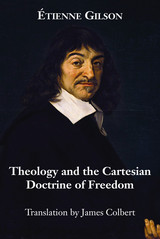
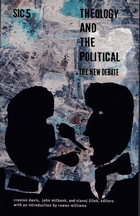
Contributors. Anthony Baker, Daniel M. Bell Jr., Phillip Blond, Simon Critchley, Conor Cunningham, Creston Davis, William Desmond, Hent de Vries, Terry Eagleton, Rocco Gangle, Philip Goodchild, Karl Hefty, Eleanor Kaufman, Tom McCarthy, John Milbank, Antonio Negri, Catherine Pickstock, Patrick Aaron Riches, Mary-Jane Rubenstein, Regina Mara Schwartz, Kenneth Surin, Graham Ward, Rowan Williams, Slavoj Žižek


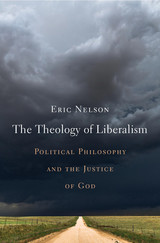
One of our most important political theorists pulls the philosophical rug out from under modern liberalism, then tries to place it on a more secure footing.
We think of modern liberalism as the novel product of a world reinvented on a secular basis after 1945. In The Theology of Liberalism, one of the country’s most important political theorists argues that we could hardly be more wrong. Eric Nelson contends that the tradition of liberal political philosophy founded by John Rawls is, however unwittingly, the product of ancient theological debates about justice and evil. Once we understand this, he suggests, we can recognize the deep incoherence of various forms of liberal political philosophy that have emerged in Rawls’s wake.
Nelson starts by noting that today’s liberal political philosophers treat the unequal distribution of social and natural advantages as morally arbitrary. This arbitrariness, they claim, diminishes our moral responsibility for our actions. Some even argue that we are not morally responsible when our own choices and efforts produce inequalities. In defending such views, Nelson writes, modern liberals have implicitly taken up positions in an age-old debate about whether the nature of the created world is consistent with the justice of God. Strikingly, their commitments diverge sharply from those of their proto-liberal predecessors, who rejected the notion of moral arbitrariness in favor of what was called Pelagianism—the view that beings created and judged by a just God must be capable of freedom and merit. Nelson reconstructs this earlier “liberal” position and shows that Rawls’s philosophy derived from his self-conscious repudiation of Pelagianism. In closing, Nelson sketches a way out of the argumentative maze for liberals who wish to emerge with commitments to freedom and equality intact.
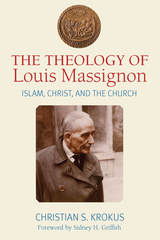
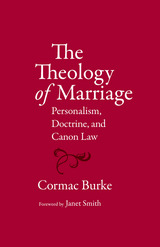
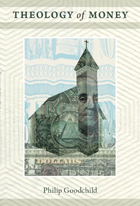
Engaging with Christian theology and the thought of Carl Schmitt, Georg Simmel, Karl Marx, Adam Smith, and many others, Goodchild develops a theology of money based on four contentions, which he elaborates in depth. First, money has no intrinsic value; it is a promise of value, a crystallization of future hopes. Second, money is the supreme value in contemporary society. Third, the value of assets measured by money is always future-oriented, dependent on expectations about how much might be obtained for those assets at a later date. Since this value, when realized, will again depend on future expectations, the future is forever deferred. Financial value is essentially a degree of hope, expectation, trust, or credit. Fourth, money is created as debt, which involves a social obligation to work or make profits to repay the loan. As a system of debts, money imposes an immense and irresistible system of social control on individuals, corporations, and governments, each of whom are threatened by economic failure if they refuse their obligations to the money system. This system of debt has progressively tightened its hold on all sectors and regions of global society. With Theology of Money, Goodchild aims to make conscious our collective faith and its dire implications.
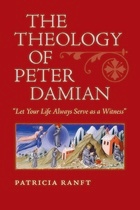
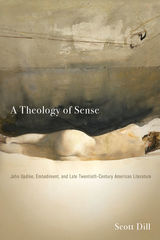
Dill explores Updike’s unique literary legacy in order to argue for a genuinely postsecular theory of aesthetic experience. Each chapter takes up one of the five senses and its relation to broader theoretical concerns: affect, subjectivity, ontology, ethics, and theology. While placing Updike’s work in relation to other late twentieth-century American writers, Dill explains their notions of embodiment and uses them to render a new account of postsecular aesthetics. No other novelist has portrayed mere sense experience as carefully, as extensively, or as theologically—repeatedly turning to the doctrine of creation as his stylistic justification. Across this examination of his many stories, novels, poems, and essays, Dill proves that Updike forces us to reconsider the power of literature to revitalize sense experience as a theological question.
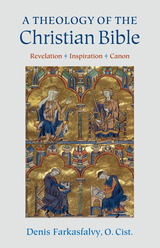
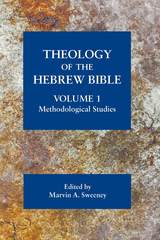
Diverse approaches to biblical theology
This volume presents a collection of studies on the methodology for conceiving the theological interpretation of the Hebrew Bible among Jews and Christians as well as the treatment of key issues such as creation, the land of Israel, and divine absence. Contributors include Georg Fischer, SJ, David Frankel, Benjamin J. M. Johnson, Soo J. Kim, Wonil Kim, Jacqueline E. Lapsley, Julia M. O’Brien, Dalit Rom-Shiloni, Marvin A. Sweeney, and Andrea L. Weiss.
Features:
- Examination of metaphor, repentance, and shame in the presence of God
- Ten essays addressing the nature of biblical theology from a Jewish, Christian, or critical perspective
- Discussion of the changes that have taken place in the field of biblical theology since World War II

A comprehensive series of essays exploring Peter C. Phan’s groundbreaking work to widen Christian theology beyond the Western world
Peter C. Phan’s wide-ranging contributions to theology and his pioneering work on religious pluralism, migration, and Christian identity have made a global impact on the field.
The essays in Theology without Borders offer a variety of perspectives across Phan’s fundamental work in eschatology, world christianity, interreligious dialogue, and much more. Together, these essays offer a comprehensive assessment of Phan’s groundbreaking work across a range of theological fields. Included in the conversation are discussions of world Christianity and migration, Christian identity and religious pluralism, Christian theology in Asia, Asian American theology, eschatology, and Phan’s lasting legacy.
Theology without Borders provides a welcome overview for anyone interested in the career of Peter C. Phan, his body of work, and its influence.
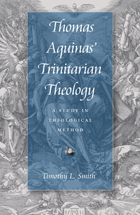
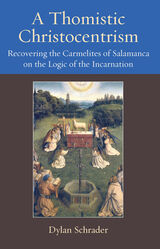
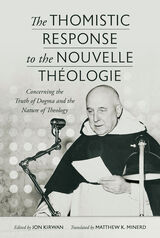

Henry David Thoreau’s spiritual life is a riddle. Thoreau’s passionate critique of formal religion is matched only by his rapturous descriptions of encounters with the divine in nature. He fled the church only to pursue a deeper communion with a presence he felt at the heart of the universe. He called this illimitable presence many names, but he often called it God.
In Thoreau’s God, Richard Higgins invites seekers—religious or otherwise—to walk with the great Transcendentalist through a series of meditations on his spiritual life. Thoreau offers us no creed, but his writings encourage reflection on how to live, what to notice, and what to love. Though his quest was deeply personal, Thoreau devoted his life to communicating his experience of an infinite, wild, life-giving God. By recovering this vital thread in Thoreau’s life and work, Thoreau’s God opens the door to a new understanding of an original voice in American religion that speaks to spiritual seekers today.
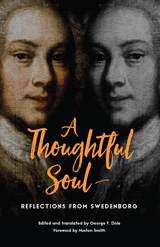
George F. Dole, Harvard Ph.D., has translated and arranged by theme a selection of passages from Swedenborg's works on life, heaven and hell, and the nature of God. This book is an accessible introduction for the reader new to Swedenborg, as well as a concise reference for those familiar with his philosophy. [Swedenborg's] philosophy is about as practical as one could ask. Ascetism is not the way to God. ... A good person can be saved with any religion or with no religion.
"George F. Dole ... has done us a great service in bringing Emanuel Swedenborg back to the attention of our distracted age."
-from the foreword by Huston Smith
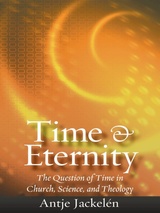
What is time? Is there a link between objective knowledge about time and subjective experience of time? And what is eternity? Does religion have the answer? Does science?
•Theological approaches to time and eternity, as well as a look at Trinitarian theology and its relation to time
•The discussion of scientific theories of time, including Newtonian, relativistic, quantum, and chaos theories
•The formulation of a "theology of time," a theological-mathematical model incorporating relational thinking oriented toward the future, the doctrine of trinity, and the notion of eschatology
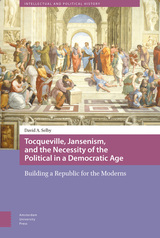
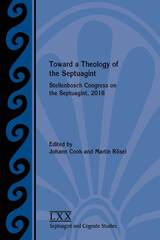
Innovative Septuagint research from an international group of scholars
Toward a Theology of the Septuagint: Stellenbosch Congress on the Septuagint, 2018 focuses on the question of whether it is appropriate and possible to formulate a theology of the Septuagint. Nineteen English and German essays examine Old Testament, New Testament, and extrabiblical texts from a variety of methodological perspectives to demonstrate that such a theology is indeed necessary and possible.
Features
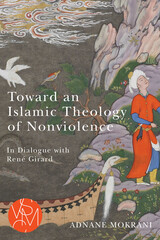
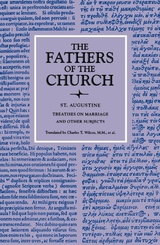
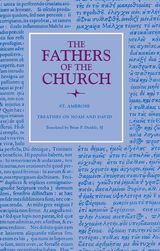
The first treatise presents Noah as a model just man, as Ambrose pairs the literal and the higher or spiritual meaning of the Genesis flood narrative to address topics ranging from the Genesis narrative to Stoic ethics to the Incarnation. In his defense of David to the emperor Theodosius, Ambrose ties David’s sin and repentance to his own close reading of Psalm 51(50), David’s plea for himself in his famous “Miserere.” While the authenticity of the third treatise included in the volume, the Second Apology of David, has long been challenged, recent scholarship suggests that it transmits Ambrose’s own preaching, which applies the lessons of David’s life to the situation of gentile unbelievers, Jews, and the church; even if it is the work of a later imitator, the Second Apology is a compelling and systematic treatment of the David’s sin and repentance as relevant to Christian morality and doctrine.
The three treatises, previously unavailable in English translation, broaden our understanding of exegesis in the Latin West and our interpretation of Ambrose as preacher and exegete.
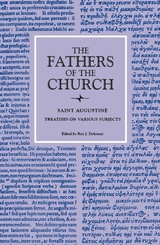
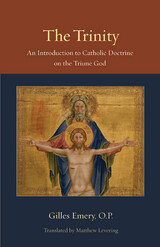
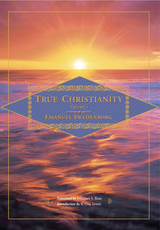
True Christianity presents a satisfying and sensible alternative to mainstream Christianity. The last book published by Swedish scientist-turned-seer Emanuel Swedenborg, it serves as both the keystone in the architecture of his theology and the summary of his far-reaching psychological insights. This volume, the first of two, provides unique answers to humankind’s perennial questions about the nature of God and about Jesus—not only what his purpose was and how he fulfilled it, but why his life and death are still relevant to us now.
This volume features an introduction by R. Guy Erwin of California Lutheran University setting the work in its theological and historical context.
The New Century Edition of the Works of Emanuel Swedenborg is a modern-language, scholarly translation of Swedenborg’s theological works. The series’ easy-to-read style retains the dignity, variety, clarity, and gender-inclusive language of Swedenborg’s original Latin, bringing his thought to life. Introductions and annotations by eminent, international scholars place Swedenborg’s writings in their historical context and illuminate obscure references within the text, enabling readers to understand and trace Swedenborg’s influence as never before.
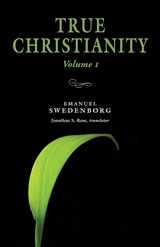
True Christianity presents a satisfying and sensible alternative to mainstream Christianity. The last book published by Swedish scientist-turned-seer Emanuel Swedenborg, it serves as both the keystone in the architecture of his theology and the summary of his far-reaching psychological insights. This volume, the first of two, provides unique answers to humankind’s perennial questions about the nature of God and about Jesus—not only what his purpose was and how he fulfilled it, but why his life and death are still relevant to us now.
The New Century Edition of the Works of Emanuel Swedenborg is a modern-language, scholarly translation of Swedenborg’s theological works. The series’ easy-to-read style retains the dignity, variety, clarity, and gender-inclusive language of Swedenborg’s original Latin, bringing his thought to life.
This portable edition contains the full text of the New Century Edition translation, but not the introduction, annotations, or other supplemental materials found in the deluxe edition.
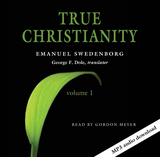
True Christianity presents a satisfying and sensible alternative to mainstream Christianity. The last book published by Swedish scientist-turned-seer Emanuel Swedenborg, it serves as both the keystone in the architecture of his theology and the summary of his far-reaching psychological insights. This volume, the first of two, provides unique answers to humankind’s perennial questions about the nature of God and about Jesus—not only what his purpose was and how he fulfilled it, but why his life and death are still relevant to us now.
The New Century Edition of the Works of Emanuel Swedenborg is a modern-language, scholarly translation of Swedenborg’s theological works. The series’ easy-to-read style retains the dignity, variety, clarity, and gender-inclusive language of Swedenborg’s original Latin, bringing his thought to life.
This portable edition contains the full text of the New Century Edition translation, but not the introduction, annotations, or other supplemental materials found in the deluxe edition.
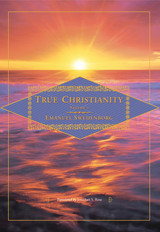
In the final years of his life, Emanuel Swedenborg wrote True Christianity, an opus that served both to contextualize his theology within contemporary Christianity and to serve as a road map for the new spiritual age that would follow. This second volume covers topics such as freedom of choice, repentance, the transformation of a person’s inner being during spiritual awakening, the rites of baptism and the Holy Supper (communion), and the second coming of the Lord.
This new translation is part of the New Century Edition of the Works of Emanuel Swedenborg, an ongoing project to render Swedenborg’s theological works in clear, contemporary language that reflects the simple and engaging style of the original Latin. The deluxe hardcover and paperback editions include extensive notes on historical aspects of the text and reference tables; they also have an index to both volumes.
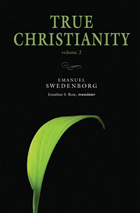
In the final years of his life, Emanuel Swedenborg wrote True Christianity, an opus that served both to contextualize his theology within contemporary Christianity and to serve as a road map for the new spiritual age that would follow. This second volume covers topics such as freedom of choice, repentance, the transformation of a person’s inner being during spiritual awakening, the rites of baptism and the Holy Supper (communion), and the second coming of the Lord.
This new translation is part of the New Century Edition of the Works of Emanuel Swedenborg, an ongoing project to render Swedenborg’s theological works in clear, contemporary language that reflects the simple and engaging style of the original Latin. The portable edition contains the text of the New Century Edition translation, but not the annotations or other supplementary materials found in the deluxe edition.
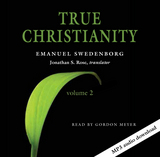
In the final years of his life, Emanuel Swedenborg wrote True Christianity, an opus that served both to contextualize his theology within contemporary Christianity and to serve as a road map for the new spiritual age that would follow. This second volume covers topics such as freedom of choice, repentance, the transformation of a person’s inner being during spiritual awakening, the rites of baptism and the Holy Supper (communion), and the second coming of the Lord.
This new translation is part of the New Century Edition of the Works of Emanuel Swedenborg, an ongoing project to render Swedenborg’s theological works in clear, contemporary language that reflects the simple and engaging style of the original Latin. The portable edition contains the text of the New Century Edition translation, but not the annotations or other supplementary materials found in the deluxe edition.
READERS
Browse our collection.
PUBLISHERS
See BiblioVault's publisher services.
STUDENT SERVICES
Files for college accessibility offices.
UChicago Accessibility Resources
home | accessibility | search | about | contact us
BiblioVault ® 2001 - 2024
The University of Chicago Press









